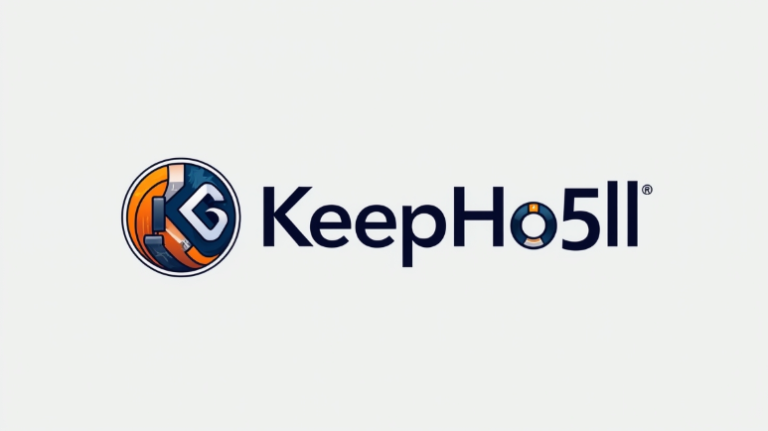What Is On‑Page SEO and Why Every Website Needs It
In the ever-evolving world of digital marketing, getting your website noticed can be a challenge. Search engine optimization (SEO) plays a central role in making your content discoverable—and among the core pillars of SEO is on-page optimization. Whether you’re a small business owner, blogger, or eCommerce site manager, understanding how on page SEO services work can significantly impact your online visibility and performance.
So, what exactly is on-page SEO? Why is it so essential for your website? And what can you do to get it right?
The Anatomy of On-Page SEO
On-page SEO refers to all the elements you can control directly within your website to improve its rankings on search engines. Unlike off-page SEO—which includes external factors like backlinks—on-page strategies focus on optimizing content, structure, and HTML source code.
Here are the key elements of effective on-page SEO:
- Title Tags: These tell search engines what each page is about and appear as clickable headlines in search results.
- Meta Descriptions: A well-written meta description entices users to click your link and should include your target keyword.
- Header Tags (H1, H2, H3, etc.): Proper use of headers helps organize content and signals hierarchy to search engines.
- Keyword Placement: Keywords should be naturally integrated into the content, headers, and image alt texts.
- Internal Linking: Linking to other relevant pages within your site helps distribute authority and keeps users engaged longer.
- URL Structure: Short, descriptive URLs are easier for both users and search engines to understand.
- Image Optimization: Compressing images and using relevant file names and alt texts boosts loading speed and accessibility.
Why On-Page SEO Still Matters in 2025
Some marketers argue that modern algorithms are smart enough to rank great content without much tweaking. While it’s true that user experience plays a bigger role than ever, on-page SEO remains foundational.
Here’s why:
1. It Improves Crawlability
Search engines use bots to crawl and index websites. Well-structured pages with clean code, clear navigation, and appropriate use of tags make it easier for these bots to understand your content.
2. It Enhances User Experience
On-page SEO isn’t just about search engines—it’s also about your visitors. Fast-loading pages, relevant headings, and intuitive layouts all contribute to a better user experience, reducing bounce rates and increasing dwell time.
3. It Boosts Content Relevance
Google’s algorithms prioritize content that appears relevant and useful to searchers. Proper use of keywords, headings, and semantic HTML helps your content rank for the queries your audience is actually using.
4. It’s the Foundation for Other SEO Efforts
Off-page SEO, like link building and social sharing, will be less effective if the destination page isn’t optimized. You can drive traffic to a page, but if it doesn’t meet user intent or perform well, it won’t convert—or rank well over time.
See also: The Secret Tech Inside Vehicle Anti Theft Devices
Common On-Page SEO Mistakes to Avoid
Even experienced marketers fall into some common traps. Watch out for these on your site:
- Keyword Stuffing: Overloading your page with keywords can actually hurt your rankings.
- Thin Content: Pages with little meaningful content provide no value and are often ignored by search engines.
- Missing Alt Text: Alt text helps search engines understand images and improves accessibility for users with disabilities.
- Duplicate Content: Copying content from other pages (or other websites) can result in ranking penalties.
- Slow Page Speed: A slow-loading website frustrates users and lowers search engine rankings. Tools like Google PageSpeed Insights can help identify bottlenecks.
How to Improve Your On-Page SEO Strategy
Ready to take your optimization game to the next level? Here are some actionable steps to implement:
Start With Keyword Research
Identify the terms your target audience is searching for. Use tools like Google Keyword Planner, Ahrefs, or SEMrush to find relevant keywords with good search volume and low-to-moderate competition.
Optimize Each Page Individually
Every page on your website should be optimized for a specific keyword or topic. Avoid trying to rank a single page for multiple unrelated terms.
Use a Logical Structure
Organize your content using a hierarchy of headers. An H1 tag should be reserved for the main title, while H2 and H3 tags can break down subtopics.
Improve Internal Linking
Link related pages within your site using descriptive anchor text. This not only boosts SEO but also helps guide users to other valuable content.
Focus on Mobile Usability
With mobile-first indexing now the norm, your site must be responsive. Make sure it looks good and functions well on all screen sizes.
Monitor and Update Content
On-page SEO isn’t a one-time task. Periodically update your pages with new information, refreshed keywords, and updated images or links to stay competitive.
The Future of On-Page SEO
As search engines become more advanced, the principles of on-page SEO continue to evolve. Semantic search, voice search, and AI-driven algorithms like Google’s BERT have changed how content is evaluated.
Yet the fundamentals remain unchanged: deliver quality content, ensure technical soundness, and make the user experience your top priority.
Voice search, in particular, is pushing websites to focus more on natural language queries and conversational content. Structuring your content to answer questions clearly and concisely can help you capture featured snippets and voice search results.
Incorporating structured data (schema markup) is also becoming more important. It helps search engines better understand your content and display rich results, such as reviews, FAQs, and events.
On-page SEO is the backbone of any successful website. While trends come and go, the need for clear, accessible, and keyword-relevant content is here to stay. By understanding and implementing solid on-page practices, you can boost your rankings, increase traffic, and ultimately grow your online presence.
And if you’re unsure where to begin, learning from professional on page SEO services can set the right foundation for long-term growth.






